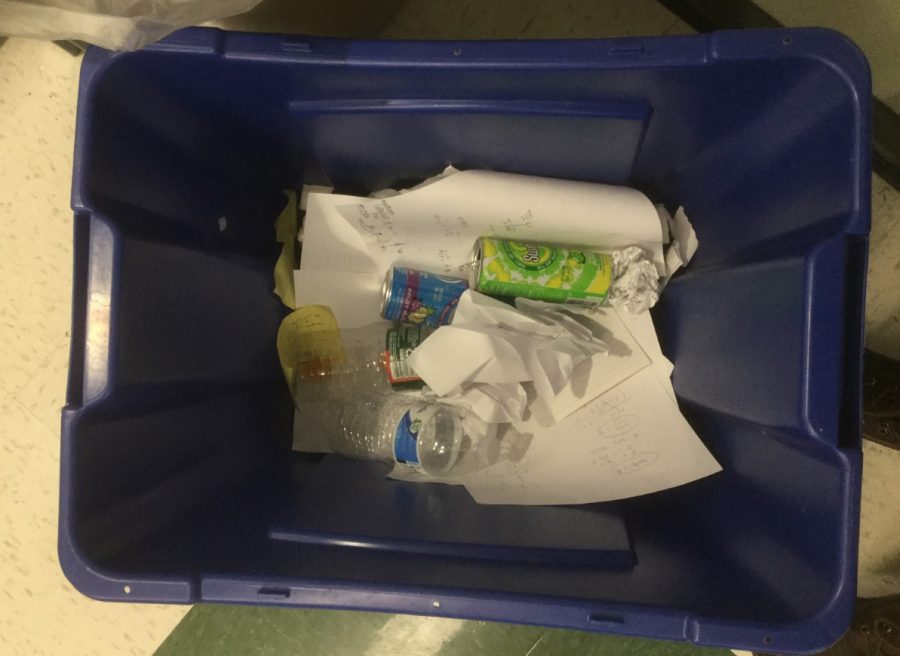Are Your Good Intentions Counteracting Recycling?
Tips for Smarter Recycling
A recycle bin on October 8, 2019 in an Abington High School classroom shows plastic water bottles and contamination of paper products.
Have you ever recycled something with food on it? Something like a greasy pizza box? Or a coffee cup with coffee still in it? Or a soda can or flavored water bottle that wasn’t rinsed? Well, I have, and probably many others have too. We Need to Make a Collective Change. We need to recycle smarter.
Not everything can be recycled. Those who might be trying to help could actually be making a bigger problem. Anyone who has recycled any unwashed or uncleaned product is part of the problem because these things make our output of recycling useless.
The residual food on anything recycled is the problem. Things with food on them cannot be recycled for a very specific reason, the paper recycling process. Paper is recycled not by melting like the majority of recycled goods, but by adding water. Paper products are combined with water to form a paper pulp. If oil, liquids, or food such as grease from pizza are on the paper, it will separate from the water and mix with the pulp. This will make poor paper that will have to be thrown away.
Our town uses a single stream recycling process, which means that all of our recycling goes in the same bin. This type of recycling risks that residual food will be transferred to the rest of the recycling. This means if there is food on a non-paper product, it can be left behind on a paper product making the paper non-recyclable.
But something can be done. Little changes like washing cups and cans is a start. It can keep trees from getting cut down. It lets more paper be recycled, which creates less environmental waste. If everyone tried and just put in the effort to separate trash from recyclable items, our school could be a much greener place. I am not asking you to make a big change, just do little things for the good of a lot of people.


Robert Tashjian • Oct 31, 2019 at 1:15 PM
This is so interesting, thanks for explaining how and why you cant recycle contaminated products. I would have never thought about it that way. It’s interesting to find out that they break it down and form a pulp, and that the grease can weaken it. Great job!
Joe Ierardi • Oct 18, 2019 at 7:12 AM
Thanks Acadia!! More people need to understand the difference between what is and is not recyclable. I always knew about the pizza boxes and food but I never understood why… I think the”why” makes a big difference in helping people recycle more smartly.
Great job!
Debbye Burke • Oct 8, 2019 at 11:08 PM
Well done Acadia…and so true!!